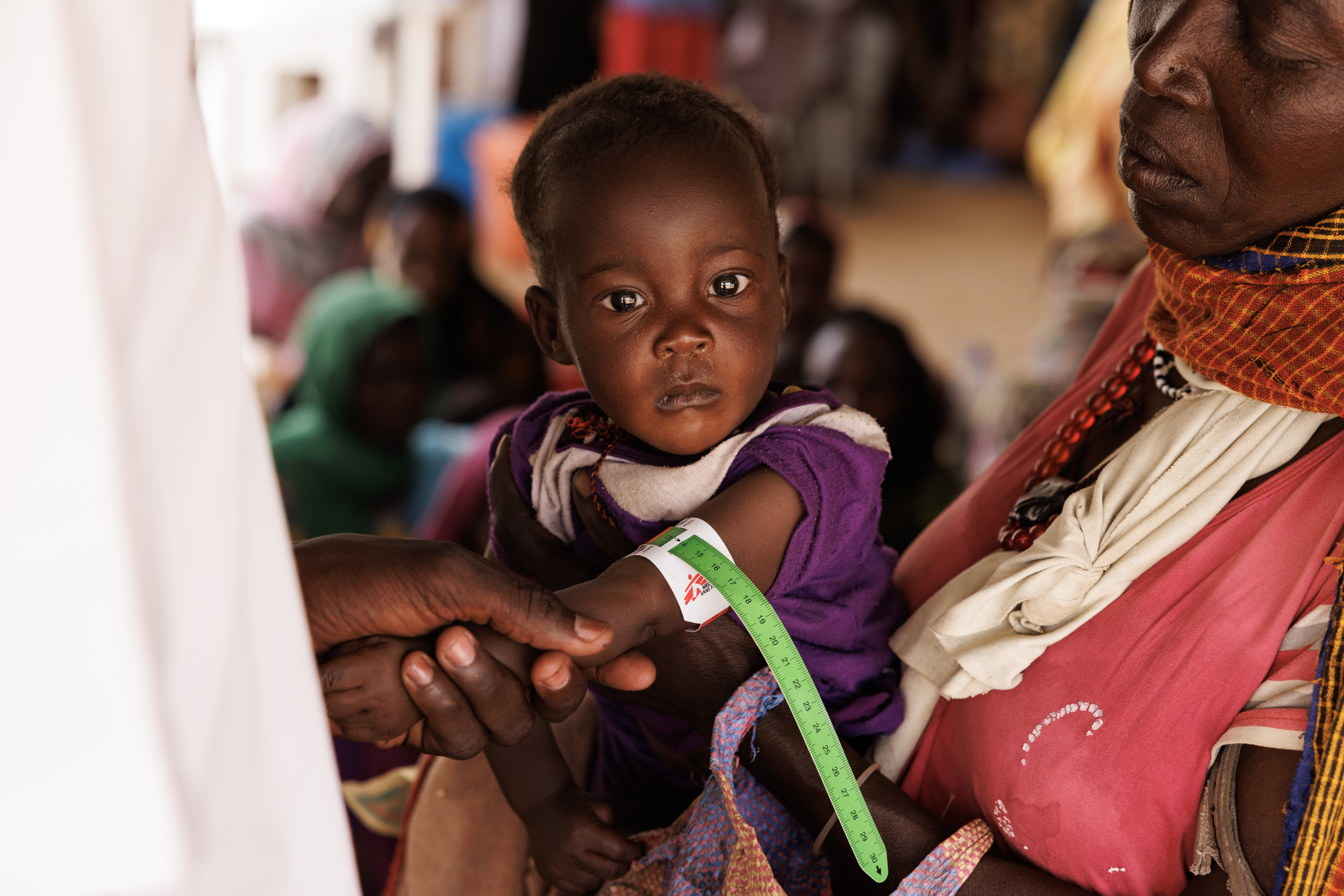Uncommon Knowledge
Newsweek is committed to challenging conventional wisdom and finding connections in the search for common ground.

The brutal civil war which broke out in Khartoum in April 2023 between two leading generals of the Sudanese Armed Forces (SAF) and the paramilitary Rapid Support Forces (RSF) is having devastating consequences on the Sudanese people, with humanitarian aid lately being halted. This is causing an increase in food insecurity in Sudan and South Sudan, with people embracing extreme measures to survive.
The horrific stories of mass deaths from hunger and starvation in Sudan are best told to me by Sudanese immigrants here in Egypt. Bekheit, a Sudanese in his late 20s, lamented in a recent chat that people in Sudan are enduring so much pain, with many hungry and “eating grass and leaves.” Other Sudanese immigrants in Egypt have recited stories of deaths in their homeland due to lack of food and the spread of contagious diseases.
The United Nations cautioned on Thursday that time is “running out” to prevent widespread starvation, particularly in the Darfur region, and to rescue the embattled people of western Sudan and other conflict-afflicted regions due to efforts being hindered to deliver emergency food assistance. The U.N. documented more than 8.8 million people who fled their homes—including 4.6 million children—within their country or outside to neighboring states, with 16,000 killed. In all, roughly half of Sudan’s 50 million people population are in need of humanitarian assistance.
The stories of hunger and annihilation in war-ravaged Sudan are the worst I have heard in Africa during the two decades I have been living in Egypt; it is the world’s worst and largest hunger crisis. These horror stories are also documented in a recent report by the World Food Program (WFP), which warns that the situation is desperate and “there is a serious risk of widespread starvation and death” in Sudan’s war-torn regions. There are at least 5 million on the brink of starvation, according to WFP, with the possibility that the number has significantly increased since it was recorded in December.
At least 1.7 million people in Darfur are facing acute hunger and are in dire need of vital humanitarian support. Many of the Sudanese who are currently taking sanctuary in El Fasher—the main and last capital city of Darfur’s five states that is under SAF’s control—fear the threat of an invasion by RSF which is encircling them. With a population of 1.5 million, El Fasher is home to 800,000 internally displaced people who escaped violence in their hometowns. And with the world community turning its attention to other conflicts, the besieged people of El Fasher face a looming large-scale massacre.
At this critical moment, one can but appeal for emergency aid to be delivered to the Sudanese people—particularly in the volatile states of Darfur, Kordofan, and El Gezira—who are today surrounded by fighters and haunted by starvation and destruction. As fighting rages, focus must now be on how to allow in immediate aid or else many Sudanese will die of starvation. Hence, reaching a temporary SAF-RSF ceasefire deal should be a primary goal.
From the stories that one hears from Egypt, the situation on the ground in Sudan—especially in the Darfur region that is on the brink of starvation—is dire and demands rapid response from the international community, which is currently mainly preoccupied with the wars in Gaza and Ukraine. There are horrific stories that one hears daily coming out from Sudan, and regrettably little attention is paid by rich nations to reduce the suffering of Sudanese people, who are in desperate need of a piece of bread.
When I was in downtown Cairo in early May, I asked a Sudanese who studied in Egypt about his opinion of the media’s coverage of the Sudanese crisis, and he quickly replied, “Western media’s coverage of Sudan is all fake news. There is a disinformation campaign about my country in which journalists escape recording the true agony and the tremendous tragedy of my people in a fierce and deadly war that is fueled by overseas weapons.”
Whether or not we accept the opinions of these Sudanese immigrants, one fact is certain: The beleaguered Sudanese people need help. Those who committed crimes against humanity must also stand trial. On May 9, Human Rights Watch accused RSF and allied militias of committing ethnic cleansing in El Geneina—capital of West Darfur—against Massalit and non-Arab communities between April and November 2023.
There is an urgent demand today for more exerted diplomatic efforts by world nations to reach a solution to a savaged war in which there will be no winners. Peace is not a distant prospect in Sudan; the ongoing fighting in the country must end now. And the separate phone calls that U.N. human rights chief Volker Türk held last week with the SAF and RSF generals should offer us a glimpse of hope toward deescalating the conflict.
Until bureaucratic hurdles are rapidly removed, and WFP aid is delivered, hunger will further engulf Sudan—with an exodus of Sudanese refugees continuing unabatedly. Unless rapid action is taken to end outside support and allegiance to both warring factions, violence will persist with more lives lost. It is morally incumbent on countries which deliver weapons to SAF and RSF to cease their actions. Or else Sudanese children and women will endure more suffering.
Mohamed El-Bendary, an independent researcher based in Egypt, taught journalism in the United States and New Zealand. He is the author of The Egyptian Press and Coverage of Local and International Events, among others.
The views expressed in this article are the writer’s own.
Newsweek is committed to challenging conventional wisdom and finding connections in the search for common ground.
Newsweek is committed to challenging conventional wisdom and finding connections in the search for common ground.